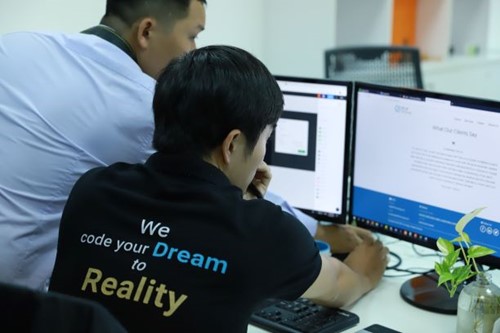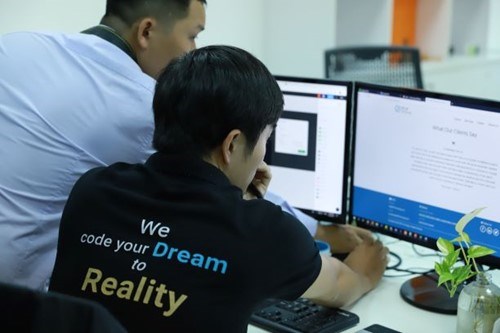
Artificial Intelligence and Machine Learning Use Cases for Mobile App Development
The introduction of new technologies (e.g. Artificial Intelligence (AI)/Machine Learning (ML), Cloud Technology, etc.) has changed and transformed the way companies operate their business.
Companies are constantly looking to provide their customers with a better and more unique, personalized experience. The competition is more heated than ever as business organizations either will adopt new technologies to transform themselves or left behind.
Overview
It’s a mobile-first world, so mobile application is still one of the critical channels that business organizations use to interact, communicate, and taking care of their customers as well as potential customers. New technologies and digital transformations offer businesses new opportunities as well as challenges in the quest to attract and retain new customers.
The challenge here is that there is a discrepancy between custom-tailored service experience and mass personalization aimed at customers.
Without a unique and personalized experience, it would be difficult to make your mobile app stand out among the already crowded app marketplace. Machine learning technology helps businesses to achieve the personalization goals, providing customers an awesome, tailored-made app using experience. Moreover, machine learning technology allows companies to create algorithms and applications that can simulate human conversation and assisting them with many daily trivial tasks.
Artificial intelligence and machine learning have indeed changed the ways mobile application is developed and also how we use them.
For example: a few years ago, customers sometimes would need to wait for a few minutes or more for a customer representative to be online helping them. Nowadays, advanced chatbot applications can take care of this task, providing answers or assisting customers with many frequent, and basic tasks in a matter of seconds. Many companies are now using AI-powered chatbot applications to help them handling a major part of customer services.

Machine learning and artificial intelligence play an important role in taking the mobile application development industry to the next level, leaving a long-lasting impression in the users’ minds.
In this article, we explore some of the ways businesses apply AI/ML into their mobile application.
Following are the top 4 examples of how Machine Learning & AI have innovated and transformed the business of mobile application development:
Personalization
As you may already know, machine learning can continually learn the pattern from data and its algorithm can take into account data from various sources including preference, purchase history, reviews, and social media, etc. in order to provide recommendations on the product items, or services that customers are more likely to consume or purchase.
For example: Spotify uses ML to provide discovery and “made for you” features, recommending the songs or new music that users are likely to enjoy based on their listening and artist interests, and other data from various sources.
Additionally, machine learning can help app owners categorize their users based on their preferences, and render content look accordingly. By collecting users’ data and using ML, app owners can learn about who their users are, their preference, purchase history, how they review or talk about your products or services, etc. and subsequently, Machine learning will classify app users into different segments and target them with individual personalized content that is tailored made for them.
Overall, machine learning enables app owners to offer their users with the content that they find most enticing and relevant to them, elevate the app user experience to another level.
Security/ Fast authentication
More than just being effective in helping business with marketing and customer acquisition and retention, machine learning can play an active role in ensuring app security and proper authentication. Artificial Intelligence and Machine Learning technologies together with facial recognition and fingerprint scan features make it possible for app users to authenticate using those biometrics data as mentioned. This helps save time and is more convenient for users to log-in to the app.

Machine learning makes it possible for app owners to detect and prevent suspicious, fraudulent activities in real-time, with a minimum requirement of human control.
For instance, a mobile payment app can apply machine learning by using a large dataset of users’ transactions together with fraud detection capabilities to authorize transactions and verifications. Each single transaction must go through analysis with fraud detection tests.
Predictive Analytics for Mobile App
One of the important metrics indicating the success of an app is its churn rate. Machine learning can help improve retaining users as well as reduce churn rate through predictive analytics. App owners can leverage ML technology to collect and understand their target audience’s preference and behavioral pattern in order to execute marketing campaigns to increase users’ interest and time spent using their apps as well as preventing them from leaving.
For example: by studying data and information of users who abandon the apps, app owners can identify their behavioral patterns that indicate the potential of churning and proactively target them with personalized content to keep them engage with the app.
Furthermore, the algorithm can also predict a particular user’s likelihood of churning by producing a quantifiable measure, which in turn allows app owners to have appropriate measures to prevent and reduce churning.
As mentioned previously, the machine learning algorithm also enables app owners to provide recommendations that increase users’ time spent using the app. Netflix leverages the power of AI and machine learning to provide personalized recommendations on movies and TV shows custom-tailored according to their users’ tastes.
Advanced searching
With machine learning, developers can enhance the search capacity of their app, providing a more contextual and accurate result, making it easier for users to have the information they’re looking for. The algorithm continuously studies the data from previous queries (search histories) made by app users together with other related data (e.g. behavioral data, preferences, etc.) to prioritize providing the search results that customers find most relevant.
Moreover, instead of having to contact human support, articles and FAQ can also be grouped together in a cohesive way to provide self-service and immediate answers for users. And, furthermore, app owners can also integrate voice search and spelling corrections into their apps, allowing users to use voice command directly from their devices.
Conclusion:
Many businesses are seeking to launch their machine learning initiatives in myriad ways that we can imagine. Machine Learning and Artificial Intelligence are essential in innovating the mobile application development industry, transforming the way people use their app, for a seamless and better than ever experience.
With machine learning, mobile apps will become more secure, faster, and more fun to use with personalized engaging content. If your companies are in midst of digital transformation, incorporating machine learning and AI technologies across your business would help speed up the process and also make the end result better and more effective
Contact TP&P Technology (a leading software development company in Vietnam) for your AI and Machine Learning mobile app development projects.



